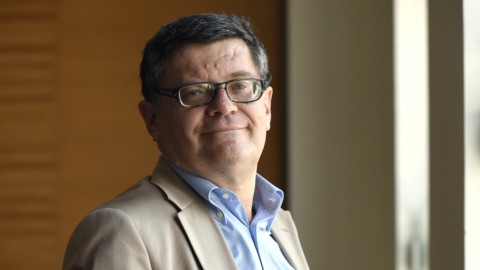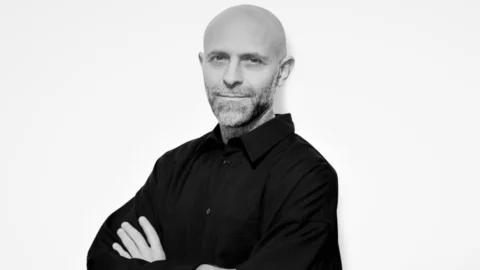Ethics: ed thriftya constitute the distinctive and qualifying marks of a unbreakable bond, the awareness of which has manifested itself in an incontrovertible way, since the tenth and eighth century, through the two main scientific results of the one who is considered the noble father of classical economics: the Scottish Enlightenment Adam Smith, author of the famous work "Research into the nature and causes of the wealth of nations", temporally preceded by the other, perhaps less known, "Theory of moral sentiments".
A link that has been perpetuated, passing through historical periods, characterized by even totally antithetical economic policy guidelines, but which in reality have never questioned its solidity.
The umpteenth confirmation of the robustness of this bond emerged during a debate held last week at the University of Tor Vergata in Rome, as part of the final moment of the seventh edition of the second level Anti-corruption Master.
Debate on the role of the corporate organization's mission in the fight against corruption
Called to reflect on the meaning and value of "Role of the mission of the corporate organization in the fight against corruption", the various speakers offered a coherent reading of it with the primacy of that link, even if starting from specific observation points that are far from each other.
For example, Giuseppe Busia, President of the National Anti-Corruption Authority, inserted his considerations as the Authority in charge of fighting the corruption phenomenon in the scenario of a social pact of a complex civil society, recalling, among other things, both how much the mission of a company proves to be an essential tool for achieving its objectives, resulting in enhanced profiles of corporate vision, sharing and selection of priorities; and, where it is governed by anti-corruption rules, how their social value and function as a powerful engine of innovation, indispensable in the ambit of virtuous socio-economic growth, are highlighted.
Also for Gianluca Trequattrini, Bank of Italy's Ethics and Corruption Prevention Manager, the work of our Central Bank, whose genesis is paradoxically wrapped up in a striking case of corruption in the last part of the 6th century (the scandal of the Banca Romana) is inspired by a paradigm in which the link between ethics and economy informs itself the various functional aspects: from the identification of any critical issues in terms of corruption, to their contrast and consequent mitigation. Among the concrete measures adopted for this purpose by the Bank of Italy, which recently renewed a Three-Year Anti-Corruption Plan, the rotation of a percentage of personnel certainly stands out (last year a portion equal to XNUMX% of the total personnel) and the intensification of a training process, markedly oriented towards increasing the sensitivity of its employees on this front.
For its part, Francesca Palisi, Head of the Legal and Tax Advisory Service of the Italian Banking Association, starting from the principle of sound and prudent management reaffirmed in the Association's operating guidelines, underlined how in Italy, within the framework of a "non-cosmetic compliance", credit companies have developed internally effective risk detection and mitigation systems corruption, which factually testify, for some time now, their firm commitment on this front.
After the voices of the Institutions and of the Banking Category Association, the debate was enriched by the considerations of two entrepreneurial exponents of national and international importance. The first, Hercules Peter Pellicanò, alongside a past of top experience in the industrial and service sectors, it boasts a present that receives the prestigious acknowledgment of Knight of Labor of the Italian Republic, assumes the task of President of the National Association for the Study of Credit Problems and the ownership of a professional firm of strategic entrepreneurial consultancy. From his testimony, corroborated by some examples deriving from the multifaceted professional experience gained in the field, confirmation emerged both of how corruption represents the speck constantly ready to threaten the regular functioning of the company machine, causing a deleterious jam; and, consequently, of how company management must always be vigilant in intervening promptly to counter the risk of corruption, avoiding its fearful spread like wildfire.
As for Nicola Allocca, Chairman of the Anti-Corruption Table of the OECD and Head of Risk Compliance & Quality of Autostrade per l'Italia, his intervention developed on two levels. On the side, he recalled the strong commitment matured at international level to counter the risk of corruption with effective measures, such as the renewed commitment of the OECD formalized in 2021, in the face of a European social impact of corruption estimated at over 900 billion euros of resources subtracted from virtuous employment. On the other hand, drawing on his own direct professional experience, he showed how it was possible to set up a "no corruption area" in two Italian companies on the business scene, involving employees in the challenging corporate objective of "zero corruption".
And from this point of view of challenging corporate objectives, finally, it is useful to recall the words spoken, at the conclusion of the debate, by Emiliano Di Carlo, Director of the Anti-Corruption Masters. “A corporate mission consistent with the guiding principle of the primary interest of the company is a practical way to introduce the ethics of governance, being the effective implementation of such measures, a consistent form to implement ethics in the company. The primary interest considers the company as an entity, distinct from its stakeholders and oriented towards the common good".





